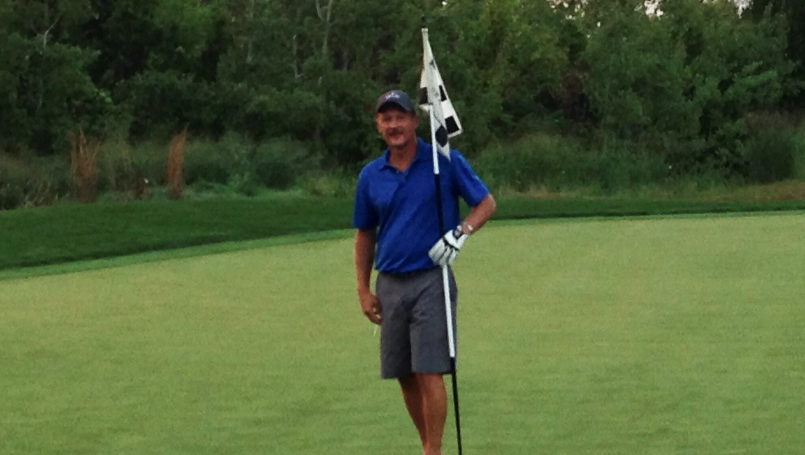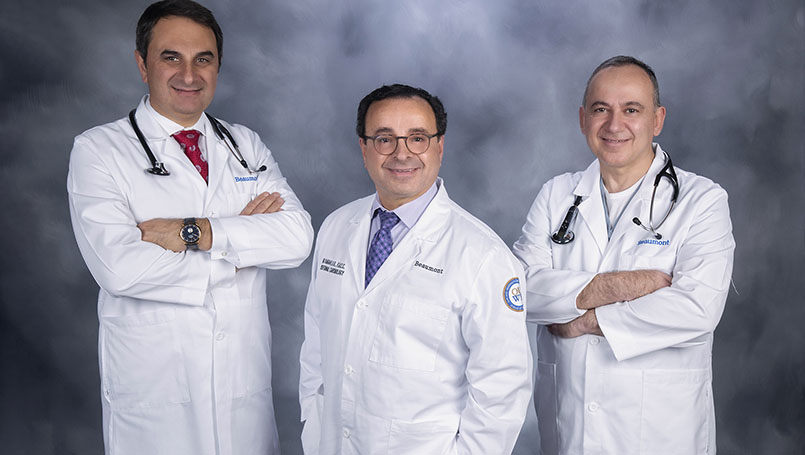Friday, February 11, 2022

CTO PCI opens 100% blocked coronary artery
The tiny wire that bored through Dave Ruta’s totally blocked coronary artery opened up a new life for the 68-year-old Downriver man.
Most people with an artery blocked 100% for more than three months, called a chronic total occlusion (CTO), have open heart bypass surgery. If they are not a good surgical candidate, others live with debilitating shortness of breath, chest pain, fatigue and other life-altering symptoms.
Ruta, who had heart bypass surgery years ago, started to have those symptoms. The avid golfer who winters in Florida’s Port Canaveral region, didn’t take action until after his golf partner started to notice.
“I was doing pretty much everything, but I was struggling with it,” he said. “Even my golf partner was saying, ‘What’s going on?’ When we golfed, I always walked, and I finally gave that up and used the cart.”

Doctors discovered his bypass had failed. His right main coronary artery was 100% blocked. Two other arteries helping with blood flow were 92% and 95% blocked. The Beaumont Hospital, Dearborn, team were able to place a stent in those two arteries, improving some of his symptoms. But some of his symptoms persisted, with his right main coronary artery still 100% blocked.
Ruta’s best option: the tiny wire, fed up to his heart through a small incision near his groin through a minimally invasive procedure called a percutaneous coronary intervention for CTO, or CTO PCI. His procedure was performed on Dec. 13, 2021, by Dr. George Nahhas, interventional cardiologist and chief of cardiology at Beaumont, Dearborn.
Ruta’s best option: the tiny wire, fed up to his heart through a small incision near his groin through a minimally invasive procedure called a percutaneous coronary intervention for CTO, or CTO PCI. His procedure was performed on Dec. 13, 2021, by Dr. George Nahhas, interventional cardiologist and chief of cardiology at Beaumont, Dearborn.
The relatively rare procedure is only done by select, specially trained and experienced cardiologists, like Nahhas. Beaumont is home to the largest experienced, successful CTO PCI team in Michigan, including Nahhas; Dr. Luay Sayed at Beaumont Hospital, Troy; and Dr. Maher Rabah at Beaumont Hospital, Royal Oak, who alone has performed more than 600 CTO PCI procedures.
“Helping patients like David is exactly why I practice medicine,” Dr. Nahhas said. “The satisfaction is tremendous on my part, too. The procedure is taxing: two, three, four hours. But, I don’t even flinch because I know this is my best shot to improve the patient’s quality of life. I know if I succeed, the patient is going to be a lot better off.”
I don’t even flinch because I know this is my best shot to improve the patient’s quality of life. I know if I succeed, the patient is going to be a lot better off.
Dr. Nahhas
Ruta, who has always been active, is back to daily walks and walking the golf course and even using light weights while working out at the gym.
“Some people were telling me, ‘You got your two stents, just let it go,’” he said. “But, I’ve seen improvement in my blood pressure. And, I feel so much better, thanks to a tiny wire.”
